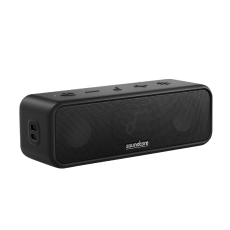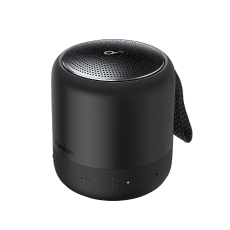How to Sleep with Someone Who Snores: A Comprehensive Guide
Do you find yourself tossing and turning at night because of the loud snoring coming from the other side of the bed? You're not alone. Millions of people are kept awake by partners who snore, struggling to find a peaceful night's sleep. In this guide, we'll explore the common causes of snoring, delve into whether it can impact your health, and most importantly, provide practical tips on how to sleep with someone who snores. Join us and find helpful advice to finally get the rest you deserve.

What Causes Snoring?
To know how to sleep next to someone who snores, it is necessary to understand what causes snoring first. Snoring occurs when the flow of air through the mouth and nose is partially obstructed during sleep. This obstruction causes the surrounding tissues to vibrate, producing the familiar snoring sound. Various factors can contribute to this phenomenon, each affecting the airway in different ways:
- Anatomical Variations: The structure of your airways plays a significant role in snoring. People with a deviated septum, enlarged tonsils, or a long soft palate are more likely to snore due to narrower air passages.
- Sleep Position: Sleeping on your back can cause the tongue to move to the back of the throat, which partially blocks airflow and leads to snoring.
- Alcohol Consumption and Smoking: Alcohol relaxes the throat muscles, which can contribute to snoring. Similarly, smoking irritates the nasal and throat linings, causing swelling that results in more snoring.
- Nasal Problems: Chronic nasal congestion or a collapsed nasal valve can also lead to snoring by creating an obstruction in the nasal passages.
- Age: As you age, the throat becomes narrower, and the muscle tone in your throat decreases. This natural aging process can increase the likelihood of snoring.
- Body Weight: Overweight individuals are more prone to snore. Excess fat around the neck can squeeze the airway, reducing its diameter and increasing the chances of snoring.

Could Sleeping with a Snorer Affect Your Health?
Sleeping next to someone who snores can be more than just a nightly nuisance; it can also have significant implications for your health. The most immediate effect of sleeping with a snorer is fragmented sleep. The frequent interruptions can prevent you from reaching deep, restorative sleep stages, increasing your risk of cognitive decline, mood changes, and irritability.
Over time, these disruptions can contribute to serious cardiovascular issues like high blood pressure and heart disease due to elevated stress levels and systemic inflammation. Additionally, chronic sleep loss can weaken your immune system, making you more susceptible to infections and affecting your mental health, increasing the likelihood of depression and anxiety.
How to Sleep with a Snorer?
The potential health impacts of sleeping with a snorer highlight the need for effective solutions to maintain your overall health and well-being. There are mainly two approaches, blocking the noise and addressing the cause.
Block Snoring Noise
Blocking the noise caused by snoring is the most straightforward method and an immediate relief. Here are some effective ways to help block out snoring:
- Earplugs: Invest in high-quality earplugs designed for sleep, which can significantly reduce the sound level of snoring.
- White Noise Machines: These devices produce a steady, soothing sound that can mask the disruptions caused by snoring.
- Snore Cancelling Earbuds: Combining the benefits of both earplugs and white noise machines, sleep earbuds for snoring like the soundcore Sleep A10 and Sleep A20 can be a game-changer.

Designed for comfort, especially for side sleepers, the soundcore Sleep A10 earbuds are slim, lightweight, and fit snugly to prevent pressure throughout the night. They feature a 4-Point Noise Masking system with ear wings and Twin Seal tips to create a noise-blocking seal. These noise blocking earbuds are equipped with customized dynamic drivers that emit low-frequency sounds, optimizing white noise for sleep.

For those who prefer even more robust noise-cancelling features, the soundcore Sleep A20 earbuds come with an upgraded4-Point Noise Masking system and Twin-Seal ear tips that offer 3x stronger passive noise blocking and sound masking. Their 3D ergonomic design and ultra-soft material make them comfortable for side sleepers, ensuring no pressure is felt. The earbuds boast a long battery life—14 hours in sleep mode, extended to 80 hours with the charging case, and a stable Bluetooth 5.3 connection that allows streaming of a personalized sleep soundtrack from a customizable white noise library.
Address the Cause of Snoring
The long-term solution for sleeping with a snorer is to address the underlying causes of snoring. Here are some essential tips on how to stop a snorer from snoring:
- Adjust Your Partner's Sleep Position: Changing your partner's sleep position can sometimes help stop or reduce snoring. Encourage them to sleep on their side instead of their back, as sleeping on the back can cause the tongue to fall back and obstruct the airway. You can also try using a body pillow or a special pillow designed to keep them on their side throughout the night.
- Maintain a Healthy Lifestyle: Encouraging your partner to maintain a healthy weight, avoid alcohol before bed, and quit smoking can significantly reduce snoring. These lifestyle changes not only help with snoring but also improve overall health.
- Manage Allergies and Nasal Congestion: If nasal congestion contributes to your partner's snoring, addressing these issues with nasal strips, antihistamines, or a humidifier can help clear their nasal passages and reduce snoring.
- Encourage Your Partner to Seek Medical Advice: If your partner's snoring is persistent and severely disruptive, it's essential to encourage them to seek medical advice. Snoring can be a symptom of a more serious condition called obstructive sleep apnea (OSA), which requires proper diagnosis and treatment. A sleep specialist can help determine the underlying cause of the snoring and recommend appropriate treatment options.
FAQ
Are there earbuds that help with snoring?
Yes, there are earbuds specifically designed to help with snoring. These earbuds, like the soundcore Sleep A10 and Sleep A20, are typically equipped with comfortable and ergonomic designs suitable for all-night wear and advanced noise-masking systems to effectively block out the sound of snoring.
Do noise cancelling earbuds cancel snoring?
Yes, noise-cancelling earbuds can help cancel snoring sounds. These earbuds can use active noise cancellation technology or passive noise blocking systems to effectively reduce low-frequency noises like snoring. For optimal results, look for earbuds specifically designed for sleep, like the soundcore Sleep A10 and Sleep A20, which are comfortable for all-night wear and offer a snug fit to maximize noise blocking.
How to stop a snorer from snoring?
To reduce or stop snoring, encourage the snorer to sleep on their side, maintain a healthy weight, avoid alcohol before bedtime, quit smoking, and stay hydrated. Additionally, using nasal strips or a humidifier can help keep airways open. If snoring persists, it may be a sign of sleep apnea, and seeking medical advice is recommended.
Conclusion
Dealing with the situation of "my husband snores so loud that i can't sleep" can be frustrating, but it doesn't have to compromise your health or your relationship. We've discussed various approaches on how to sleep with someone who snores, from using earplugs or noise cancelling earbuds to block out snoring to encouraging lifestyle changes and specific sleeping arrangements that can help your partner stop snoring. Remember, communication is key, and sometimes, a professional consultation might be necessary for severe cases. With the right strategies, you can turn restless nights into restful ones, even next to a snorer.

















































